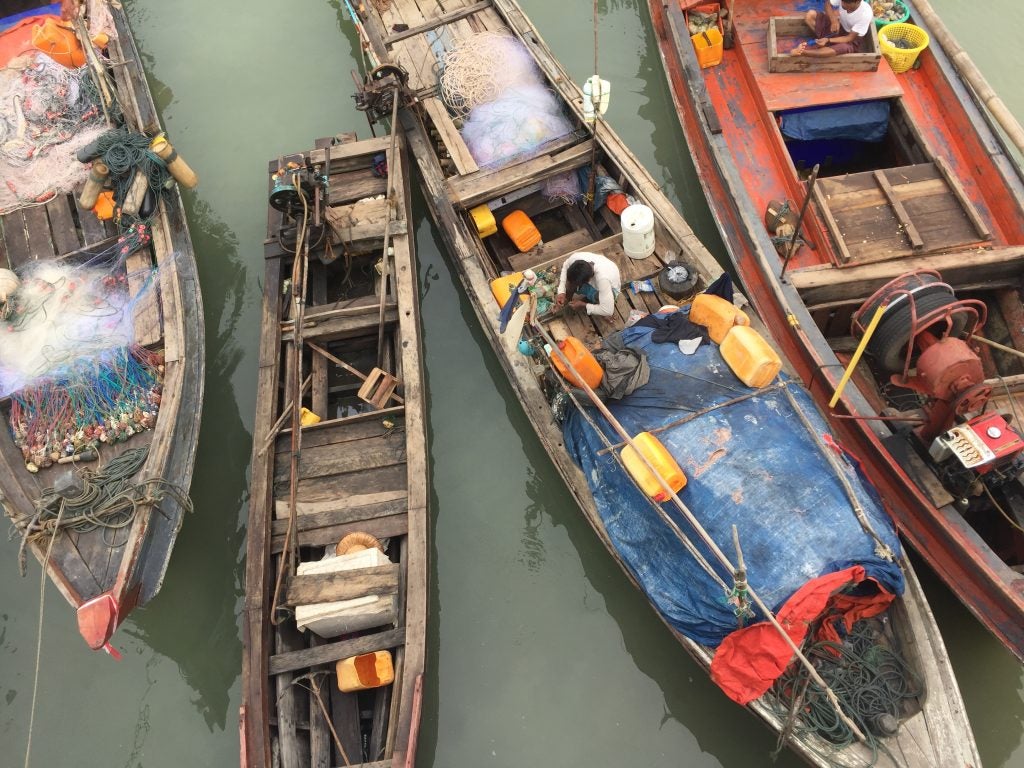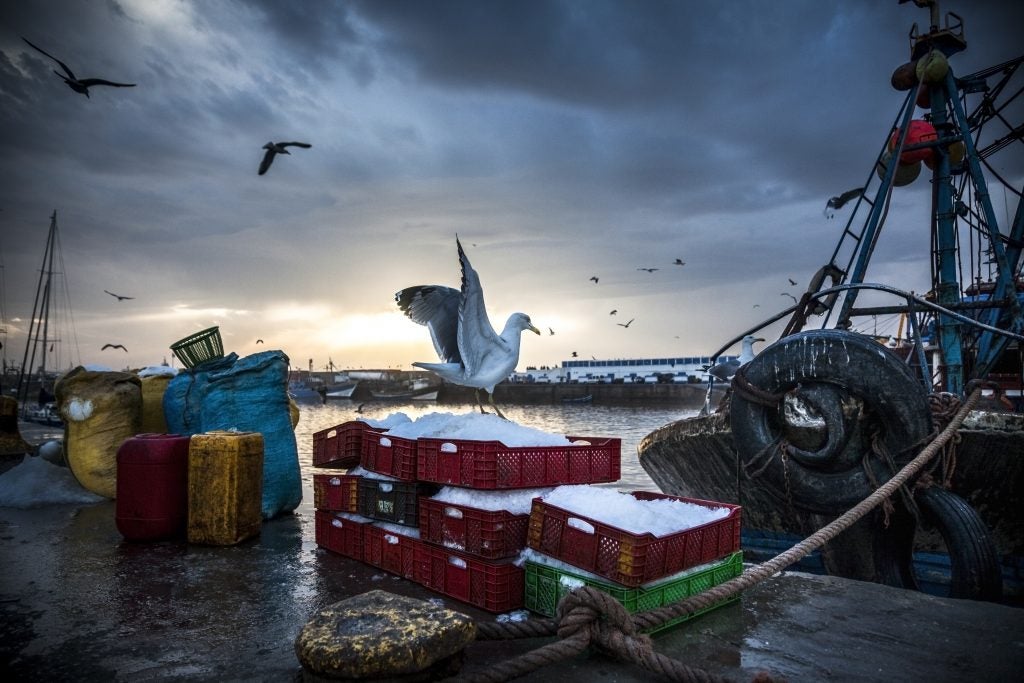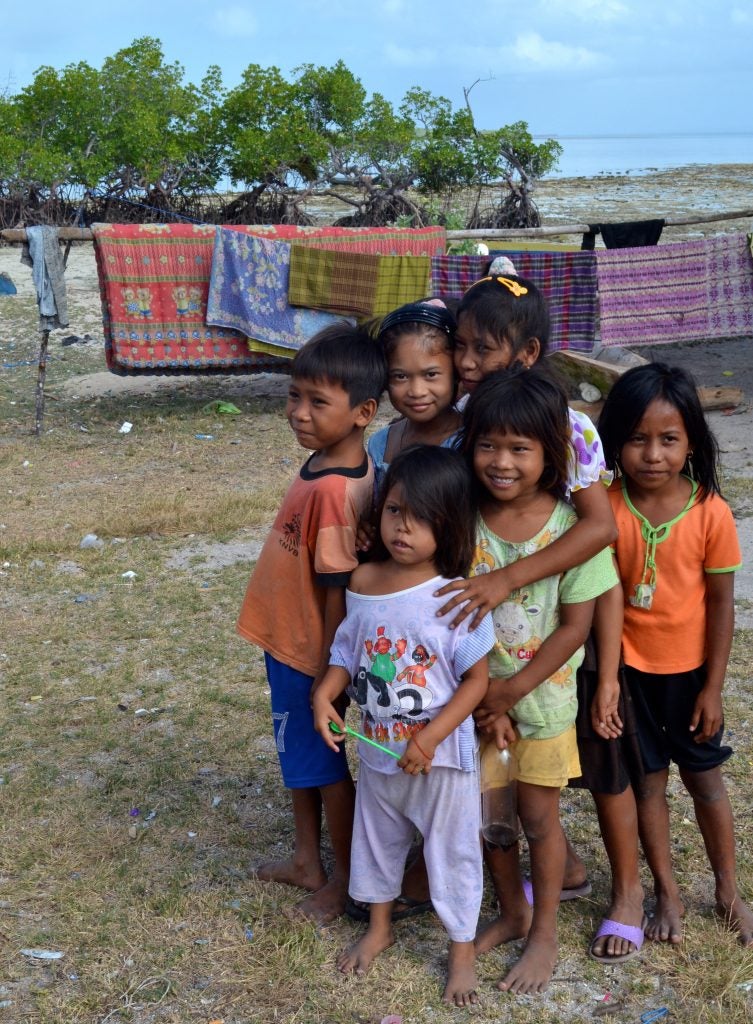The hustle and bustle of a local fish market – usually seen in the pre-dawn dark, with bare-bulb lights illuminating what’s for sale and the shouts from sellers (usually in a language I don’t understand but with meaning clear enough to get out of the way of carts brimming with ice and fish) – is my favorite place to learn about small-scale fisheries. This is where it all comes together, with fishermen landing their catch, buyers (usually women) negotiating prices and customers buying products for that day’s meal or business. Here is where I am a learner and observer – hearing details about challenges these individuals face in maintaining their livelihoods, seeing the pride people have in their work and chatting about what we all can do to sustain the jobs, food, communities and ecosystems that are part of this system. Read More
EDFish
Five takeaways from the World Small-Scale Fisheries Congress
Five reasons for hope on World Fisheries Day 2018
You may not have it on your calendar – but today is World Fisheries Day – a moment to celebrate the incredible bounty that we receive from the sea. It’s also an opportunity to take stock and reflect on where we’ve been, and where we’re headed. As we look back over the past year, the EDF Oceans team has been struck by how much the global oceans community has accomplished. And we’re increasingly optimistic and energized about the future health and resilience of our oceans. Here are five reasons for hope on World Fisheries Day. Read More
Can marine conservation be more effective by cooperating across boundaries?
 This week, world leaders are convening in Bali, Indonesia for the Our Ocean Conference. This event is dedicated to conserving and protecting ocean ecosystems so that the world’s swelling population can continue to rely on oceans for food and livelihoods for generations to come. The timing and location of this week’s conference are particularly acute following recent confirmation by the IPCC that nations must act quickly and in cooperation to limit climate change. This is especially important in Asia, where most of the world’s fish are produced and consumed, and fishing is rapidly accelerating to meet growing demands.
This week, world leaders are convening in Bali, Indonesia for the Our Ocean Conference. This event is dedicated to conserving and protecting ocean ecosystems so that the world’s swelling population can continue to rely on oceans for food and livelihoods for generations to come. The timing and location of this week’s conference are particularly acute following recent confirmation by the IPCC that nations must act quickly and in cooperation to limit climate change. This is especially important in Asia, where most of the world’s fish are produced and consumed, and fishing is rapidly accelerating to meet growing demands.
Meeting marine conservation challenges that are shared across many nations in Asia can be done more efficiently, effectively, and quickly if we work together across national boundaries. Read More
The Mesoamerican Reef: A shared vision for prosperity and conservation
Working with the next generation of conservation leaders in the MAR
Transformative change on an ecosystem scale is extremely challenging. But in the Mesoamerican Reef (MAR)— stretching 600 miles of coral reefs, mangrove forests and seagrass beds along the coasts of Mexico, Belize, Guatemala and Honduras—sustaining a rich array of biodiversity and thousands of local people, it is happening. Leaders from all four countries recently convened on a shared vision for prosperity and empowered coastal communities—setting a new course for sustainable fishing and ecotourism in the region.
The complex balance of the coral reefs, mangroves and seagrasses protect and nurture more than 500 species of fish—essential in these countries for food security, economic development, and poverty alleviation. The beauty of the reefs attract visitors and ecotourism dollars to local communities. Read More
The Fisheries White Paper, and Beyond
The UK Fisheries White Paper has finally landed. This hugely anticipated document provides a blueprint for future fisheries management in the UK as it forges the country’s own path after Brexit. The paper sets out aspirations for achieving a ‘gold standard’ for UK fisheries management – an area which the paper acknowledges is of ‘totemic importance’.
A fresh start is a rare thing in fisheries management, and there’s plenty to indicate that the UK is ambitious in making the most of re-defining its approach to fisheries science and international relationships when it comes to our seas. We welcome innovative approaches to managing quota, such as the Government’s planned quota reserve, which will pool new quota potentially resulting from Brexit negotiations. This shows Government are switched on to the power of quota-based incentives to support best practice in sustainable fishing (as described in my previous blog on quota). Concerns remain, however that there is still an imbalance between large and small scale operators and that Government should do more to make quota available to smaller, low impact vessels. Read More
Why should you care about fisheries? They can help feed the world.
By: Doug Rader and Kristin Kleisner
Food security is a hot button topic for today’s world leaders, and rightly so as the population swells to 10 billion people by the middle of the century. Feeding that many people is a huge challenge – creating an urgent call to action for resources to be managed more sustainably and equitably – and wild seafood plays a big role.
Typically, these discussions focus on land-based agriculture, including the production of grains, seeds, crops and livestock that, while subject to droughts, diseases and shortages, are the main source of world food consumption as measured by total calories. However, food sources from our oceans, lakes and rivers also play a large part in feeding the world, and deserve their place in the discussion. Read More













